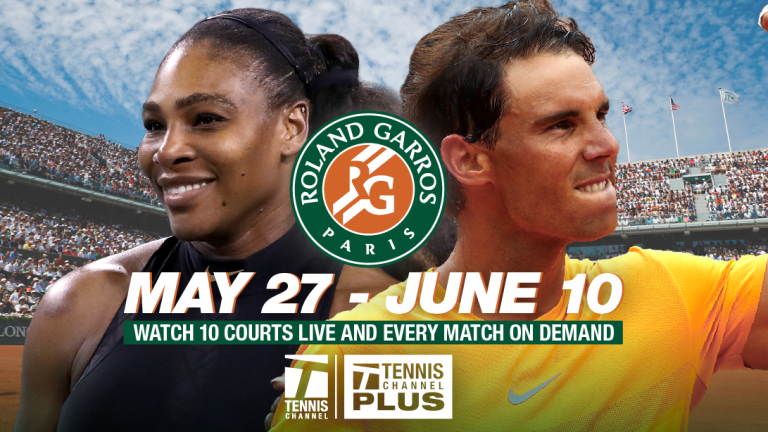Chang was seeded 15th, but he had reason to feel like he could hang with the three-time champion. He had dropped just one set in his first three matches, which included a 6-1, 6-1, 6-1 win over fellow California teenager named Pete Sampras. Against Lendl, though, he lost the first two sets and appeared to be overmatched. Chang’s serves and forehands floated softly and landed short. What’s more, he knew that Lendl was well aware of his weaknesses.
“We’d played in an event the year before in before in Des Moines [Iowa],” Chang said. “Ivan beat me and we rode in the same car back to the hotel.” On the way, Lendl gave the rookie a little tough love.
“He said, ‘First off, you’ve got no serve. And you’ve certainly got no second serve. You can’t hurt me. You can run but you better develop a weapon to survive out here.’”
“I worked on those things,” Chang said, “and I was able to hurt Ivan the next year at the French with them.”
Chang was a grinder at heart, but he had to change the dynamic against Lendl. He turned the tide in the third and fourth sets with inspired all-court play. But just as he had worked himself back into the match, Chang cramped. At 2-1 in the fifth, he began to walk to the chair to retire, but stopped halfway there.
“I thought, ‘You’ve fought this far, why would you quit?’ I had a conviction that I would finish the match any way I could. I decided I would do anything out there, lob, moonball, go for winners.”
Desperation paid off. As the fifth set progressed, Chang would take pace off the ball and back his opponent into one corner, then go for broke up the other line, leaving Lendl well out of position. The packed stadium roared incredulously as Chang kept finding new ways to survive.
Chang bunted service returns straight into the air and followed them to net. He paced the sidelines during changeovers rather than sit down and risk not being able to get up. After one point, he took so long drinking water that he received a time violation warning, then kept drinking anyway.
At 4-2, 15-30, Chang went even further. He set up in his usual service stance, but instead of tossing the ball up, he dropped it and flicked a side-spinning underhand serve. A startled Lendl moved forward too quickly and ended up coming in behind a weak approach. Chang’s passing shot skimmed the tape, and Lendl couldn’t handle the volley. Chang stalked forward, pumping his arms wildly. Audience members gasped, shrieked, shook their heads and looked at each other to confirm that they’d just seen what they thought they’d seen.
If any tennis match deserved a final dramatic twist, it was this one. Chang, the innocent California kid turned diabolical ringmaster for a day, provided it. Lendl set up to serve down 3-5, 15-40—double match point against him. He missed his first serve. Chang, fidgeting uncontrollably, walked all the way up to a spot about a foot behind the service line.
The crowd whistled with a mix of confusion and derision. Lendl began to bark at the chair umpire. When it was clear that nothing would be done about Chang’s position or the crowd noise, he shook his head in frustration and resignation, as if he knew that he couldn’t fight destiny on this day. His second serve clipped the net cord and bounded long. Chang covered his face and fell to the ground in tears of pain and joy.
Chang would go on to upset Stefan Edberg in five sets in the final to become the youngest male Grand Slam champion (he still is). Years later, Lendl offered no opinion on Chang’s tactics that day, just terse respect for his achievement.
“Lots of times a lesser player could beat me and not back it up,” Lendl said. “You’d have to say he was a lesser player then, but Michael backed it up.”
Two weeks after his miracle in Paris, Chang traveled to Wimbledon. He spotted Lendl in the players’ lounge.
“I wasn’t sure how he would react,” Chang said. “But he walked up to me, looked me in the eye, and said, ‘Great French Open, Michael. Congratulations.’”
“Before that tournament,” Chang said, “I didn’t know what to think of myself as an American. I was just this little kid who looked different from everyone. That week was the first time I really knew what it meant to be Chinese.”
Chang would never win another major. He would never again play with such desperate resourcefulness. He would never hit another underhand serve.
